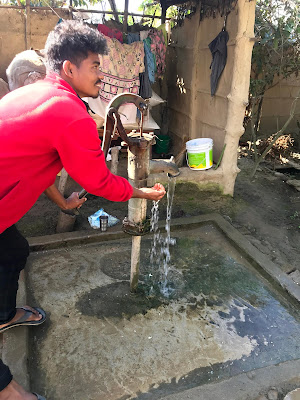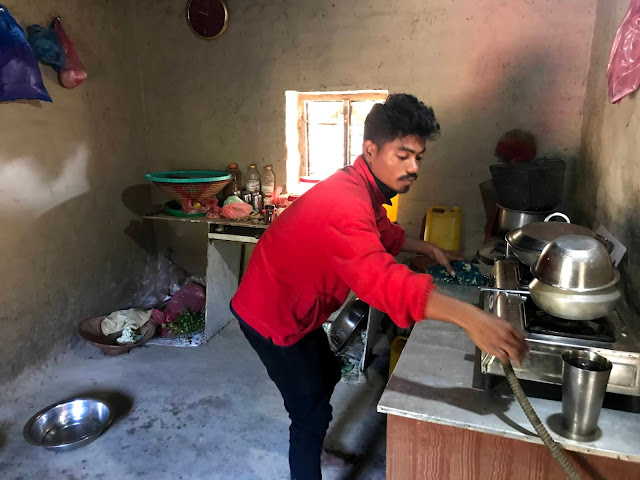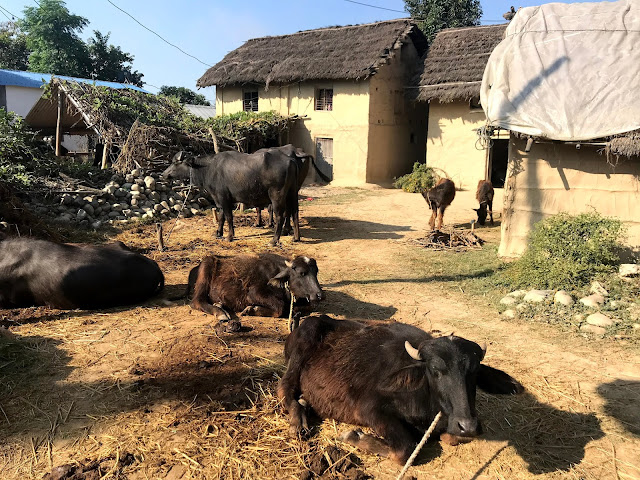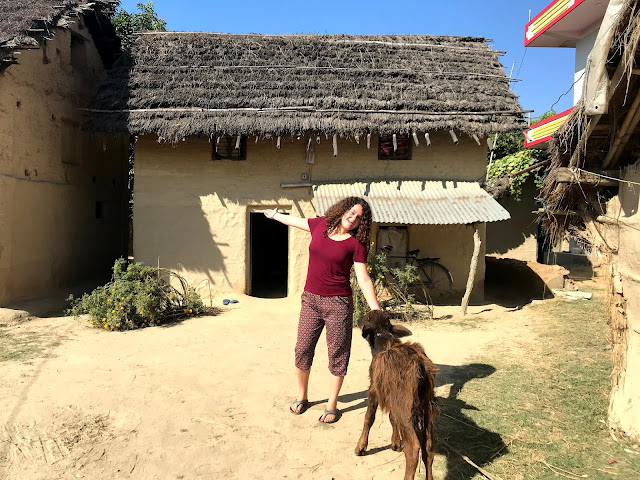They tell me that I should write as much as I can now while everything is still fresh in my mind. It's a little hard when I'm also expected (by others or by myself) to adjust back in to life here, to apply for jobs, to keep my art business going, to be with my family again, to do household duties, to tend to my health... so here we are, a few weeks out from my return home, and I'm going to do my darned best to write some things down. Here we go...
Let's dive in to things I am now grateful for that I never knew I would be without.
Reading time: 7 minutes
Showering: USA Suburb vs. Nepali Village
When I was in the shower the other day, I was shocked to notice how many things I had always taken for granted that now feel so new and exciting to me. Examples:
-Showering inside the house
-Showering naked
-Showering in private
-Showering barefoot
-Hot water
-Running water
-Convenience of shampoo, conditioner, razor living in the shower
-Showering easily by myself with no help
-The air in the house being controlled for comfort
-No-slip bath mat
-Not getting dirty while showering or immediately after
Had I ever imagined being without any of these things? Not really. Had I ever been so grateful for any of these things before? Absolutely not. Let me paint a picture of a shower in the Nepali village from where I came directly before my return to America (also a fine shower experience, but different and takes getting used to):
-Showering outside by the water pump
-Showering wearing a petticoat (think sleeveless knee-length dress)
-Showering in public, in front of whoever happens to be there, family or strangers
-Showering with flip-flops on
-Cold water
-Water you pump yourself OR at Uncle's house, running water from a hose
-Bring your own things from inside the house (shampoo, conditioner, razor, brush)
-Showering is much easier with a buddy or two
-The air is whatever it is honey - yes, a bath might and often does make you ill in the winter
-Slippery situation!!
-Water pump area is surrounded by dirt, super easy to become dirty while bathing or after
And that is a shower in the village! Do you see the differences? Please don't get me wrong - I LOVED living in the village and I am so excited to go back. BUT, I'm seeing the American lifestyle I lived for the first 22 years of my life now with fresh eyes. This is the point of what I'm sharing. And to help you to understand how much you may have that you can appreciate rather than taking for granted, as I did for so long. Let's dive into another.
Cooking: USA Suburb vs. Nepali Village
Last night I cooked my family a Nepali meal, in an American kitchen. Some things I noticed about cooking here:
-SO much was SO EASY!!!
-Running water in the kitchen
-Pots/utensils already clean, no need to rinse before use
-So easy to peel squash with peeler
-Could cook so much at once; 4 burners on the stove!
-Leftovers can be REFRIDGERATED
-Serrano peppers aren't as spicy as Khursani. Use more next time. (***EDIT: too spicy for many family members! Remember, we aren't in Nepal anymore, where people are used to the spice! Ha!)
And then, what it was like in my Nepali village kitchen:
-I got used to it, it was pretty easy here too after some time
-Get buckets of water from outside and carry them into the kitchen; anything needing serious washing must be taken to the water pump outside
-Rinse every pot or utensil before using. It was washed before, but dirt floats in the air and settles on anything and everything. The house is made of mud after all!
-Squash peeled with SICKLE. Someone else always did this for me, or I'd peel it badly with a knife.
-Two burners only, also only one pan for vegetables, so can't cook everything at once
-Leftovers must be eaten at the next meal, as a snack, or thrown out (people usually leave out their leftovers for the village dogs)
-I miss Khursani peppers... yum.
Those are the main contrasts I observed between a Nepali village kitchen and my current US kitchen. Shall we do one more?
Electricity: USA Suburb vs. Nepali Village
Some things I noticed about electricity here:
-The power RARELY goes out
-When the power does go out (even for a couple of minutes), people are freaked out
-People go to their neighbors' homes to make sure their house is not the only one without power
-The electricity is generally so strong and consistent that we never expect it to go out.
And then, what it was like in my Nepali village home:
-The power OFTEN goes out
-When the power goes out (even for a few hours), people shrug it off as normal
-People go to their neighbors' homes to make sure their house is not the only one without power (SAME AS MY USA EXPERIENCE)
-The electricity is generally so weak and unreliable that people are just grateful when it is on. (Though, people don't love it when the power goes out - inconvenient!)
That wraps up the primary differences I observed between a Nepali village's electricity and my current power situation in the US.
Let's recap:
Showering, cooking, and electricity represent 3 out of countless areas in which my Nepali village and US suburb experiences contrast each other. In general/in the traditional sense, the US suburb experience is much easier for me... but we must remember that this is what I grew up being used to. I'm certain that if I grew up in the village, adjusting to life here would be challenging, perhaps as much as it was for me to adjust to life there. It's unclear. However, I will say this:
Let's be grateful for the little things.
Let's enjoy hot water right out of the faucet.
Let's enjoy air conditioning.
Let's enjoy consistent electricity.
Let's enjoy the freedoms these facilities allow us.
Because these aren't little things at all.
They feel little to us because we don't know any different.
But they are huge when we know what it is like to live without them.
So much love and gratitude, from home.
🏡
PS: Stay tuned for a video about life in the village, coming Thursday!






No comments:
Post a Comment